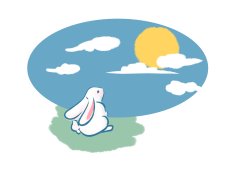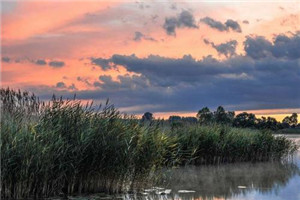【简介】下面是小编整理的七下历史期末试卷(共9篇),欢迎大家阅读分享借鉴,希望对大家有所帮助。在此,感谢网友“sz203311”投稿本文!

七下英语期末试卷3
七年级英语下学期期末复习试卷3(附答案牛津版)
一、单项选择
( ) 21.There’s ____ cat on the chair. _____ cat is ______orange..
A. a, The, / B. an, The, an C. a, A, an. D. the, The, /
( ) 22. I live_______ my family_______ a flat _______ a busy street.
A. in; in ; on B. in ; with ; on C. with; in; on
( ) 23. There are ______days in a year.
A. three hundreds and sixty-five B. three hundred and sixty five
C. three hundred and sixty-five D. three hundreds and sixty five
( ) 24. I went to the park______ yesterday.
A. on a bicycle B. by the bicycle C. in a bicycle D. by bicycles D. with ; with; on
( ) 25. The shop that is _______ to my home is often_______ at 9:30 p. m.
A. close ; close B. closed ; closed
C. close ; closed D. close ; closes
( ) 26. There _______a basketball match in our school next Monday.
A. will have B. is going to C. will be D. is going to have
( ) 27.--Oh, Sandy, I can’t sing at all.
--_________, I can teach you.
A. You are bad B. Thank you C. Never mind D. You are right
( ) 28. Do you know that nice car __________?
A. belong to his B. belongs to him C. belong to him D. belongs to his
( ) 29. This swimming pool is ________.
A. 50 metre long
C. 50 metres long B. 50-metre-long D. 50-metres long
( ) 30. _______ Xihui Park, please turn right after you _______ the bridge.
A. To arrive; cross C. Get to; across B. Arrive at; across D. To get to; cross
( ) 31. Shall we stop _________ something? I’m quite hungry and tired.
I can’t go now.
A. eat B. to eat C. eating D. eats
( ) 32. ---How much milk is there in the bottle? ---________.
A. No B. None C. No one D. Many
( ) 33. _____ your sister afraid of_____ out alone at night?
A. Is; going B. Is; to go C. Are; going D. Does; going
( ) 34. Would you like ____________ to tell us?
A. anything interesting B. something interesting C. interesting anything D. interesting something
( ) 35. This route is wrong. Let’s take _______ one.
A. the other B. any other C. other D. another
二、完形填空
Hi, everyone! I will tell you about my favourite city London. It is the capital of 36 . It is a beautiful city. It is very large. The Thames River(泰晤士河) runs through the city from 37 to east. So the city has 38 parts, the South and the North. In the North 39 important buildings, shops, big parks and interesting places. The weather in London is good. In winter it is not very 40 and in summer it is not very hot, 41 the city is near the sea. People say that London is a foggy(多雾的) city and it often 42 . It is 43 . There is much fog and rain in London. When you 44 in London, you may meet thick(浓的)fogs. Sometimes you can’t 45 your hand in front of your face. Cars and buses move along with their lights on. When evening comes, the weather(气候) gets even worse(更恶劣), 46 the buses and cars stop. If you want 47 to other towns, you 48 find a car easily(容易). You have to arrive there 49 . Do you like the city, 50 ? I like it very much.
( )3
6
( )3
7
( )3
8
( )3A. there is B. there are C. there have D. there has A. two B. three C. four D. five A. east B. west C. south D. north A. England B. America C. China D. France
9
( )4
( )4
1
( )4
2
( )4
3
( )4
4
( )4
5
( )4
6
( )4
7
( )4
8
( )4
9
( )5
三、阅读理解
(A)
My name is Panrit. I live in Samutprakarn. It is about thirty kilometres south of Bangkok, the capital of Thailand. My house is near a museum and opposite a school.
My house has two floors, two bedrooms and two toilets. We don't have a dining room, so we eat our meals in the living room. There are four people in my family, my mum, my dad, my brother and I.My house doesn’t have a garden but we have some plants in pots(盆景). We also have some small fish.My mum likes the plants very much. She usually waters and looks after them when she's
A. also B. too C. very D. either A. walk B. on foot C. by bus D. by car A. can B. can’t C. will D. must A. go B. to go C. going D. goes A. none B. not C. no D. all A. have B. l
第一文库网ook after C. see D. look A. be B. are C. am D. is A. right B. not right C. wrong D. not true A. rain B. rains C. is rain D. is raining A. because B. so C. or D. but A. cold B. hot C. warm D. coolat home.
I don't usually stay at home. I usually stay at my grandma's home because it is more comfortable. In her home, there is no homework, and all I have to do is play.
( ) 51. Panrit lives_______ the capital of Thailand.
A. about thirty kilometres from B. to the east of
C. far from a museum D. in the north of
( ) 52. Panrit's family have meals in the__________
A. dining room B. living room C. bedroom D. garden
( ) 53. Panrit's ________ looks after the plants at home.
A. father B. brother C. sister D. mother
( ) 54. Which of the following is TRUE?
A. Panrit often helps his grandma with the housework.
B. Panrit likes watering the plants at home.
C. Panrit often stays at his grandma's home.
D. Panrit is the only child in his family. ( ) 55. The best title for the passage should be_______.
A. My Home
B. My Student Life D. My Grandma
(B) It was a beautiful spring morning. There wasn’t a cloud in the sky, and the sun was warm but not too hot. Mr. White saw an old man at the bus stop with a big and black umbrella in his hand.
Mr. White said to him, “Do you think it’s going to rain today?”
“No,” said the old man, “ I don’t think so.”
“Then are you carrying the umbrella because the sun is too hot?”
“No, the sun is not very hot in spring.” Mr. White looked at the big umbrella again, and the old man said, “I am an old man, and my legs are not very strong. I must have a walking-stick. But people will say, ‘Look, the man is so old, and I don’t like him.’ But when I carry an umbrella in fine weather people only say, ‘Look at the stupid (愚蠢的') man.’
( ) 56. The story happened _______.
C. My Parents
A. on a rainy day
B. in the afternoon D. at a bus stop C. on a cloudy morning
( ) 57. It was a very ______ day.
A. hot B. bad C. fine D. cloudy
( ) 58. There was _____ in the old man’s hand.
A. an umbrella B. a walking-stick C. a bag D. a magazine
( ) 59. There was something wrong with the old man’s _____.
A. head B. arms C. legs D. feet
( ) 60. According to(根据) the story, we can know__________.
A. the old man liked the weather
B. the old man thought that it was going to rain
C. the old man was very old, so he couldn’t walk by himself
D. the old man wanted people to say he was stupid
(C)
Mrs Baker lives in a small town in England. Her husband can do everything well. He goes to Sydney and finds a job there. He works hard and gets a lot of money. Mr Baker misses his wife and children very much. So he asks them to travel to Sydney. They are very happy.
It’s very far from England to Sydney. Mrs Baker and her children have to take a plane. They are traveling in a plane for the first time, so they are all excited. The two children don’t feel tired although(尽管) they can’t fall asleep(入睡) the night before. They play with each other after the plane takes off(起飞). Their mother stops them, but they don’t listen to her. Mrs Baker becomes angry(生气) and says, “Don’t play here! Go and play outside!”
( ) 61. The Bakers are _______.
A. Australian B. Chinese C. American D. English
( ) 62. Mrs Baker and two children go to Sydney to _______ there.
A. find a job C. study English B. makes planes D. see Mr Baker
( ) 63.Mr Baker wants his wife and children to go to Sydney because_____
A. he can go back
C. he gets much money B. he wants to see them D. he wants to travel in Australia
( ) 64. Mrs Baker and the children go to Sydney _______
A. by bus B. by car C. by air D. by train
( ) 65. ______, so the two children can’t fall asleep the night before.
A. They will play in the plane
B. Their mother will work in Sydney
C. They will take a plane for the first time
D. They will go to England
(D)
( ) 66. If you want to go from the Teacher’s college to City Center, you can take Bus_____.
A. No. 5 B. No. 10 C. No. 3 D. No. 9
( ) 67. You can see the 1st Hospital in the _____ of the city.
A. north B. west C. east D. south ( ) 68.Beihai Park is next to_______.
A. No.9 Middle School B. Bank of China
C. May Airport D. Railway Station
( ) 69.How many hospitals can you find in the map?
A. One. B. Two. C. Three. D. Four.
( ) 70. In the map , you can’t find a place ______.
A. to eat B. to read books C. to shop D. to see a film
四、词汇
A. 根据句意或括号中的中文提示、英文释义,写出句中所缺单词,使句子通顺。
71. Look! A train is going _________ (穿过) the tunnel.
72. The two boys don’t work hard, so they often _________ (失败) in the exams.
73. There is less air _________ (the state of being dirty) in our hometown now.
74. They were _________ (afraid) when they heard a strange whisper.
75. Beijing is the _________ of China.
76. My idea is quite different from _________.
77. Jim likes __________ food very much, but I like Chinese food.
78. It was an __________ day for us because we won the game.
79. It’s my father’s __________ birthday today.
80. You should listen to the teacher __________ in class.
81. Look at the clouds in the sky. It _____________.
82. The boy never ________ his things with others. Nobody likes him.
83. He ________ on the coat and went out quickly.
84. They ________ a sport meeting next month.
85. --- Where is Mr. Wang?
--- He _________ to Tom in the classroom.
五、句型转换
86. He will visit his grandparents this weekend. (改否定句)
He _______ _________ his grandparents this weekend.
87. There is only a tomato on the table. (对画线部分提问)
How _______ ________ are there on the table?
88. We will go to Beijing by train. (对画线部分提问)
________ ________ you go to Beijing?
89. I live on the sixth floor. Tom lives on the third floor. (同义句转换)
I live _______ floors _______ Tom.
90. She spends half an hour reading English every day. (同义句转换)
It _______ her half an hour _______ read English every day.
六、短文填空
Most children like w 91 TV. It’s very interesting. B 92 _ watching TV, they can see and l 83 a lot and know many things about their country and the world. Of course, they can also learn over the r _94_ . But they can learn b 95 and more easily on TV. Why? Because they can h 96 and watch at the same time. But they can’t see a 97 over the radio. TV helps to open c 98 eyes. It helps to open their minds, too. They learn newer and better w 99 of doing things. Many children watch TV only on Saturday or Sunday evening. They are always busy with their lessons. But a f 100 children watch TV every night. They go to bed very late. They can’t have a good rest. How about you, my young friend?
七书面表达
假如你是Millie, 想邀请好友Sandy来你家。请根据下面提供的信息,用英语写一篇邀请信。 要点:1. 很高兴邀请你来我的新家;
2. 这里非常安静,而且邻居们相当友好;
3. 和你家不同,我家离市中心远,乘地铁要20分钟;
4. 你来的时候,请走这条路线:在出口处出来,沿着“新路”(New
Road)走,直到你看到一个公园,花园大楼(Garden Building)就在
它左边。我住在603公寓。
5. 我希望你能来。我期待见到你。
注意:1. 以第一人称口吻介绍;
答案
一、单项选择 (15分)
21-22 ACCAC 26-30 CCBCD 31-35 BBABD
二、完形填空 (15分)
36-40 ABABA 41-45 ABABC 46-50 DBBBB
三、阅读理解(40分)
51-55 ABDCA 56-60 DCACC
四、词汇(每题1分)
A: 71. through 72. fail 73. pollution 74. frightened 75. capital
B: 76. hers 77. western 78. unusual 79. fortieth 80. carefully C: 81. Is going to rain 82. shares 83. put 84. will hold
五、句型转换(每格1分)
86. won’t visit
89. three above
六、短文填空(每格1分)
91. watching 92. By 93. learn 94. radio 95. better 87. many tomatoes 88. How will 85. is talking 61-65 DDBCC 66-70 ACABA 90. takes to
96. hear 97. anything 98. children’s 99. ways 100. few
七、书面表达 (15分)
Dear Sandy,
I have moved into a new fat. I am very happy to invite you to my new home. It’s very quiet here, and neighbors are quite friendly. It’s really different from yours. My home is far from the city centre. It takes twenty minutes to get there by underground. When you come, please take this route. Get out at the exit, and walk along New Road until you see the park. Garden Building is on its left. I live in Flat 603. I hope you can come. I am looking forward to seeing you.
Yours
Millie
篇2:七下历史知识点1.北宋时毕升发明活字印刷术,它大大促进了文化的传播,15世纪欧洲才出现活字印刷,比我国晚约四百年。
2.指南针是我国人民的伟大发明,早在战国时期,人们制成“司南”这是世界上最早的指南仪器。北宋时,制成了指南针,并开始用于航海事业。南宋时海外贸易发达,指南针广泛用于航海。
3.火药是我国古代炼丹家发明的,唐朝末年,火药开始用于军事上,宋元时期,火药武器广泛用于战争,主要有突火枪、火箭、火炮等。
4.北宋的司马光是我国古代著名的史学家,他编写的《资治通鉴》是一部编年体通史巨著,叙述了从战国至五代的历史。
5.北宋文学家苏轼,他的词气势豪迈,雄健奔放,代表作《念奴娇·赤壁怀古》。两宋之交的李清照作品风格委婉,感情真挚,善于运用口语,显得格外清新自然。南宋的辛弃疾,把词的豪放风格发扬光大,他在词里经常倾吐对山河分裂的悲痛。
6.北宋时期的著名画家张择端的作品是风俗画《清明上河图》,描绘了东京汴河沿岸的繁华
七下历史知识点归纳:蒙古的兴起和元朝的建立1.12,蒙古贵族召开大会,推举铁木真为大汗,尊称他为成吉思汗,建立蒙古国,从此结束了长期混战的局面。
2.1271年忽必烈定国号为元,1272年定都大都。1276年元军占领临安,南宋灭亡。
3.元朝大都既是政治中心又是闻名世界的商业大都市。记述意大利旅行家马可·波罗在东方见闻的《马可·波罗行纪》一书,描述了大都的繁华景象。
4.元朝为加强对全国的有效统治,元世祖在中央设中书省,地方设行中书省,简称“行省”。元政府加强对西藏的管辖,西藏成为元朝正式的行政区;还加强对琉球的管辖。
5.元朝时的民族融合:(根本原因是国家的统一)
表现:许多汉人来到边疆,为那里的开发作出贡献;边疆少数民族大量迁入中原和江南,同汉族等杂居相处;原先进入黄河流域的契丹、女真等少数民族已经同汉族没有什么区别;形成一个新的少数民族——回族。
作用:促进各民族经济文化交流,促进了统一多民族国家的巩固和发展。
篇3:七下历史知识点1.宋朝的造船业居世界首位。东南沿海的广州、泉州等地,都有发达的造船业。
2.从越南引进的优良品种占城稻,南宋时很快在江南地区推广。水稻在宋朝跃居粮食产量首位,主要产地在南方。棉花的种植,由两广、福建扩展到长江流域。茶树的栽培主要在江南的丘陵地区。
3.北宋时蜀地丝织品“号为冠天下”。江浙的丝绸产量高,朝廷用的丝绸,有很多来自江浙。
4.南宋时,江南地区已成为我国制瓷业重心。浙江哥窑烧制的冰裂纹瓷器,给人以别致的美感。北宋兴起的景德镇,后来发展成为著名的瓷都。
5.南宋时最大的商业都市是临安,它的繁荣程度远远超过北宋时的开封。
6.宋朝的海外贸易发达,成为当时世界上从事海外贸易的重要国家,广州、泉州是闻名世界的大商港。
7.元朝政府鼓励海外贸易,在主要港口设立市舶司,加以管理。
8.北宋前期,四川地区出现交子,是世界上最早的纸币。纸币的产生,有利于商业发展。
9.从唐朝中后期开始的经济重心南移,到南宋最后完成。那时政府的财政收入主要来自南方特别是东南地区。(国家根本,仰给东南)
篇4:七下历史教学计划一、指导思想
着眼于学生的发展,注重弘扬中国各民族的优秀文化,重视学生的思想情感教育,培养正确的世界观、价值观和人生观。注意引导学生进行探究性学习,倡导教师探索新的教学途径,改进教学方式和教学手段,开展丰富多彩的教学实践活动,营造良好的教学环境。
新课标教材七年级历史下册在全面贯彻基础知识,能力培养和思想教育三项教育目标的前提下,突出了三点:一是减轻学生负担,降低难度;二是增加启发性和生动性;三是培养创新实践能力。
二、学生基本情况分析
七年级学生总体水平查不多。历史是他们新接触的一门新学科,所以大部分同学求知欲较强,课堂纪律较好。但缺乏综合归纳能力,且有部分同学学习目的不明确,学习欠积极。
七年级学生处在长身体、长知识的阶段,每天都接触社会,他们的一些想法是对社会现实的反映,而他们受到年龄与知识的限制,社会分辨能力正在形成之中,虽然是不定型的思想,但也会影响其行为。教师有责任帮助他们正确认识社会,激发他们的学习兴趣,端正学习态度,应经常了解、分析学生的心理与思想状况,以便做到心中有数。其次要切实了解学生的知识结构,认真分析其学习状况,发现其长短处,在此基础上制定切实可行的教学方案,从大多数同学的实际情况出发,同时也要兼顾两头。
三、教材分析
1、教材特点
本学期初一历史下册选用的是人教版教材,融思想性、政治性、科学性、知识性于一体。可读性强,图文并茂,新增了许多趣味性较强的课堂知识活动。
2、教材内容
本学年继续讲授中国古代历史,主要以课为单位,叙述我国隋朝至明朝以及清朝初年的历史,各个时期的兴衰过程及其经济、文化的改革和发展,共22课,每课教学一课时。
3、教材重点、难点
教材重点在于与历史发展的线索相关的重大事件和人物以及经济、文化的发展。
难点在于向学生进行思想教育及对历史事件、人物的评价
四、教学目标:
通过学习,使学生了解重要的历史事件、历史人物、历史现象及历史发展的基本线索,理解重要的历史概念,引导学生学会收集、整理和运用相关的历史学习材料,启发学生对历史事物进行想象、联想和分析、综合、比较、概括等认知活动。注重培养学生的创新意识,以及与他人合作和参与社会实践活动的.能力。进一步认清历史前进的大趋势和当代中国的基本国情,坚定建设中国特色社会主义的共同理想,树立为实现共产主义而奋斗的远大理想,肩负起时代赋予的社会责任和崇高使命,当好社会主义事业的建设者和接班人。进一步培养学生运用知识分析解决问题的能力,培养学生的创新能力和自主学习的能力,提高学生的各方面素养。
五、主要措施
实施素质教育主渠道在课堂,实施素质教育的关键在教师。因此我计划做到以下几点:
1、教材贯穿一些材料阅读,“想一想”等虽然不是教材的正文,却是教材正文的扩展,实际上是给了学生一定的。思考空间,让学生更自主的学习,有助于扩大学生的知识面,形容视野,发展学生的智力,激发学生的学习兴趣,同时,又实施了爱国主义教育,人文精神教育,因些,教学时要充分利用教材,同时让学生分组讨论,人人参与观察、猜想、验证,推理与交流等教学活动。
2、同时,在课堂教学中倡导师生平等,民主的人际关系,应尊重学生的差异,崇尚个性和主体性,鼓励探索真理,在教师启发、诱导下,学生发现问题,提出问题,这给教师提出更高要求,学生在拥有发挥个人才智的机会和空间的同时,压力感又会促进学生去主动涉猎知识,独立思考问题和寻求解决问题的方法。所以在教学过程中,一定要创设一个良好的氛围,注意师生双方交往、互动、分享彼此的思考,见解知识,交流彼此的情感,观念与理念,彼此形成一个真正的“学习共同体”。
3、落实好课堂的教学目标。目标统一,准确;以“内容标准”的要求为依;体现统一要求与个性发展统一。
4、使学生主动叁与到课堂教学中,如课堂上答题、小讨论,故事会,通过这些活动开发学生的思维潜能,激发学生的学习兴趣,培养学生创新意识,同时也使学生主动复习当天所学的内容。这样就使学生上课的注意力集中,加强课堂纪律的管理。及时发现不足,及时总结。
5、积极开展历史活动课,鼓励学习参与历史小制作,通过课外读物,网上探访古迹、名人轶事,扩大历史的知识面,通过自主的学习方式,提高探究学习能力。加强培养学生创造精神实践能力。
6、集体备课强化教学质量,让教师之间取长补短,资源共享,每周进行集体备课一次。
7、上公开课及听课,课后评议互相促进,提高教学效果。
六、教学进度
新教材初一历史第一册总共有22课,其中新课讲授占二十二个课时,单元复习占四个课时,期中复习占两个课时,期末总复习占四个课时。
篇5:七下历史知识点苏教版一、加强对西藏的管辖
1、确立册封__、**的制度
(1)顺治帝赐予五世__“__喇嘛”的封号;
(2)康熙帝赐予五世**“**额尔德尼”的封号。
(3)以后历世__和**,都必须经过中央政府的册封。
2、设置驻藏大臣(雍正时)
二、粉碎大、小和卓的叛乱
1、粉碎回部贵族大、小和卓的叛乱(乾隆时期)
2、设置伊犁将军(乾隆时期)
伊犁将军:管辖包括巴尔喀什湖在内的整个新疆地区。
三、土尔扈特重返祖国
1、土尔扈特西迁伏尔加河下游(明末)
2、渥巴锡领导土尔扈特部重返祖国(1771年)
篇6:七下历史知识点苏教版一、明清经济的发展
1、从国外引进的农产品
玉米、甘薯、马铃薯、花生和向日葵
2、棉纺织业从南方推向北方
3、丝织业的发展
(1)丝织业中心:苏州、南京
(2)丝织业的规模:南京的丝织业到清代已拥有三万多台织机。
4、制瓷业中心:景德镇
5、商品经济空前活跃
(1)全国性的商贸城市:北京、南京
(2)明清的商人以山西的晋商和皖南的徽商最为著名。
二、资本主义萌芽的出现
“机户出资,机工出力”最早出现在苏州、松江等地的纺织业中。机户是早期的资本家,机工是早期的雇佣工人。他们之间这种雇佣与被雇佣的关系,是一种资本主义性质的生产关系。
三、“闭关锁国”的政策
1、清朝统治者实行“闭关锁国”政策的原因:
(1)坚持以农为本的传统观念,为压抑、限制民间工商业的发展
(2)认为天朝物产丰富,无需同外国进行经济交流
(3)为抵制国家的领土主权受西方殖民者的侵犯
(4)害怕沿海人民同外国人交往,会危及自己的统治。
2、“闭关锁国”的措施:
(1)清初的禁海政策:将沿海居民内迁数十里,不许擅自出海贸易。
(2)清朝统一后的严格限制对外贸易
前阶段:开放四个港口,作为对外通商口岸,并对出口的商品种类和出海船只的载重量作出严格的限制
后阶段:只开广州作为对外通商口岸,规定由政府特许的“广州十三行”统一经营管理贸易。
3、“闭关锁国”的影响
(1)对西方殖民者的侵略活动,起过一定的自卫作用。
(2)限制了对外贸易和航海事业的发展;
(3)限制中外文化交流,妨碍了中国掌握世界先进思想文化和科学技术,使中国落伍了。
七下历史知识点苏教版: 时代特点鲜明的明清文化一、雄伟的北京紫禁城和明长城
1、明北京城
2、明长城:东起鸭绿江,西至嘉峪关,全长六千余公里。
二、古典科技巨著的涌现
作者
著作
价值
李时珍
《本草纲目》
是一部具有总结性的药物学巨著,被译为多国文字,成为世界医药学的重要文献。
宋应星
《天工开物》
“中国17世纪的工艺百科全书”
徐光启
《农政全书》
农业百科全书,农学史上最早传播西方近代科学知识的书籍。
三、古典小说的高峰
年代
著作
作者
题材
价值
元末明初
《三国演义》
罗贯中
三国时期历史记载和民间传说
我国最早的一部长篇历史小说。
元末明初
《水浒传》
施耐庵
北宋末年宋江领导的梁山泊农民起义
第一部以农民起义为题材的长篇小说。
明朝中期
《西游记》
吴承恩
唐僧取经的故事
一部充满浪漫主义气息的长篇神话小说。
清朝
《红楼梦》
曹雪芹
古典小说的高峰,具有高度的思想性和艺术性,在世界文学史上占有重要地位。
四、戏剧的繁荣
1、明朝后期最负成名的戏剧家:汤显祖,其代表作为《牡丹亭》。
2、京剧的形成:在徽剧、汉调的基础上,融合吸收了其他剧种的曲调和表演方法,在19世纪中期初步形成。
五、书画的成就
1、书法:
董其昌:兼有“颜骨赵姿”之美。
2、绘画
山水、花鸟画居统治地位。
徐渭:善于泼墨
“扬州八怪”
猜你感兴趣的:
1.苏教版历史七年级上册知识点
2.苏教版七年级下册历史复习提纲
3.七年级下册苏教版历史复习提纲
4.苏教版七年级下册历史复习知识点
5.历史苏教版七上知识点
篇7:历史七下听课评语历史七下听课评语
王:课上思维活跃,课下积极完成作业,但是思维有些慢,但总体还是不错的。希望在以后的学习生活中,再接再厉。
陈:上课认真听讲,积极回答问题,有疑问直接向老师提出,主动思考,认真完成作业。希望在以后的学习中,继续保持。
田:上课认真听讲,主动思考,作业认真完成,虽然有时不能跟上老师的节奏,但是态度积极向上。希望有疑问直接向老师提出,再接再厉。
贺:课上认真,学习态度端正,仔细完成作业,及时完成老师布置的任务。希望继续保持。 张:上课认真听讲,积极回答问题,有疑问直接向老师提出,主动思考,认真完成作业。希望在以后的学习中,继续保持。
张:上课认真听讲,认真记笔记,仔细聆听老师讲解的知识点,认真完成作业。希望以后的学习中查漏补缺,取得更好的成绩。
刘:课上认真,学习态度端正,仔细完成作业,及时完成老师布置的任务。希望继续保持。 马:上课认真听讲,认真记笔记,仔细聆听老师讲解的知识点,认真完成作业。希望以后的学习中查漏补缺,取得更好的成绩。
田:课上思维很好,认真主动跟着老师思考,但作业有些潦草,希望你在以后的笔头工作上,能够下更多的功夫,取得更好的成绩。
庞:上课认真听讲,积极回答问题,有疑问直接向老师提出,主动思考,认真完成作业。希望在以后的学习中,继续保持。
沈:上课认真听讲,认真记笔记,仔细聆听老师讲解的知识点,认真完成作业。希望以后的学习中查漏补缺,取得更好的成绩。
邹:历史思维不错,课上反应很快,作业质量很高,在平时的考试中取得了不错的成绩。希望继续保持,再接再厉。
穆:作为历史课代表,认真完成老师布置的任务,上课认真听讲,认真记笔记,仔细聆听老师讲解的知识点,希望继续保持。
庞:上课认真听讲,积极回答问题,有疑问直接向老师提出,主动思考,认真完成作业。希望在以后的学习中,继续保持。
王:上课认真听讲,认真记笔记,仔细聆听老师讲解的知识点,认真完成作业。希望以后的学习中查漏补缺,取得更好的成绩。
时:上课听讲认真,爱思考,善于发问,如果课下能多用点功夫相信你会取得更高的成绩,希望继续努力。
陈:课上认真,学习态度端正,仔细完成作业,及时完成老师布置的任务。希望继续保持,相信你会取得更高的成绩。
班:历史思维不错,课上反应很快,作业质量很高,在平时的考试中取得了不错的成绩。希望继续保持,再接再厉。
苏:上课听讲认真,爱思考,善于发问,仔细聆听老师讲解的知识点,相信你会取得更高的成绩,希望继续努力。
史:上课认真听讲,认真记笔记,仔细聆听老师讲解的知识点,认真完成作业。希望以后的学习中查漏补缺,取得更好的成绩。
高:上课认真听讲,认真记笔记,仔细聆听老师讲解的知识点,认真完成作业。希望以后的学习中查漏补缺,取得更好的成绩。
谢:历史思维不错,课上反应很快,作业质量很高,在平时的考试中取得了不错的成绩。希望继续保持,再接再厉。
1.听课评语
2.老师听课评价评语
3.教师听课常用评语
4.小班教师听课评语
5.听课评语大全
6.学校教师听课评语
7.教师听课评语10则
8.教师听课评语大全
9.老师听课评语
10.高中老师听课评语
篇8:历史作业本七下答案城市聚落
【基础巩固】
1、乡村聚落
2、政治 北京 经济 巴黎
3 - 6 B C C D
【拓展提升】
1、B
2、(1)城市 高楼大厦密集 金融、商业、服务业(非农业) 乡村 种植业、林业、渔业、畜牧业
(2)城市高楼林立,分布密集;乡村房屋低矮,散落分布。
(3)降水丰富;屋顶倾斜,便于排水。
篇9:历史作业本七下答案众多的河湖
【基础巩固】
1、里海 北美
2、尼罗河 印度 太平
3、防洪 发电
4 - 6 D A A
【拓展提升】
1 - 3 D A C
4、亚马孙河流域主要为热带雨林气候,终年高温多雨,降水充沛,而尼罗河流域地处热带沙漠气候和热带稀树草原气候区,降水明显比亚马孙河少得多。
5、略
★ 七下历史复习提纲
★ 初二历史第一学期期末试卷及答案
★ 北师大版八年级历史上册期末试卷及答案
★ 一年级期末试卷
★ 语文期末试卷
★ 七下生物复习提纲
★ 七下班主任工作计划
★ 七下地理复习提纲
★ 七下地理知识点归纳
★ 七下男生女生说课稿




